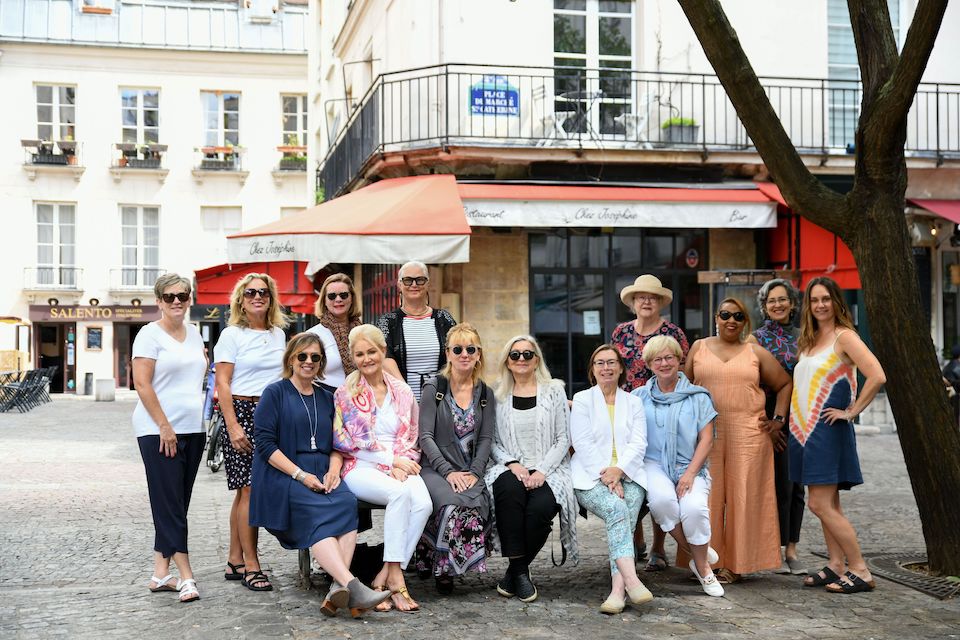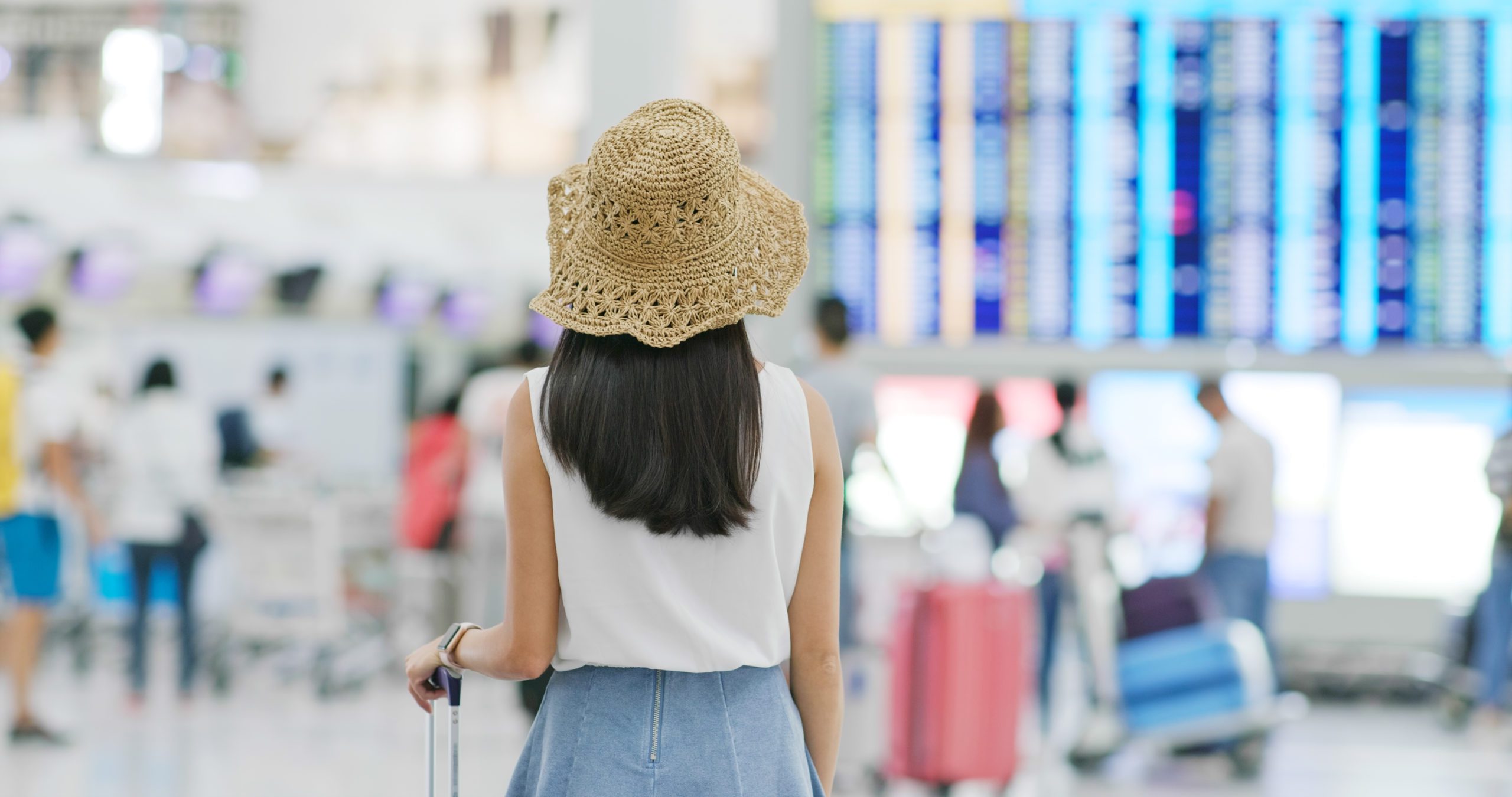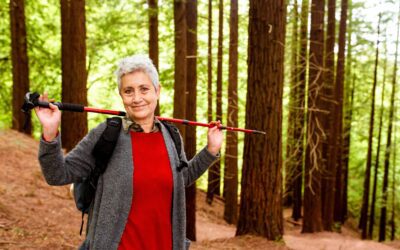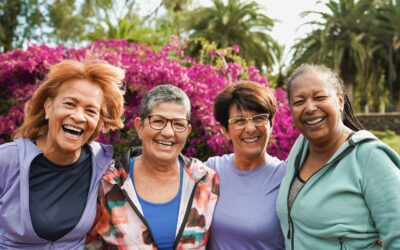Last updated on November 30th, 2023
Featured image: Entering an airport is not the experience it used to be. Photo from Envato
Anxiety affects every step of the travel experience
By Amanda Burgess, Contributor, JourneyWoman
EDITOR’S NOTE: In this article, we are not advocating for people who are currently uncomfortable with travelling to simply push their fears aside and hop on a plane. What we are advocating for is arming all travellers with tips and tools to stay present, aware, and calm. The best decisions are made from that place, and the decision to travel or not travel is a deeply personal one that we respect.
In the aftermath of 9-11, airport security measures the world over were changed, adding time and steps to the air travel process. Travellers quickly began to fly again, but it felt different. Now, in the pandemic era, travel has changed again. It feels different. The world had a two-year hiatus from international travel at regular volumes, which are starting to ramp up—note Miami airport reported higher volumes in December than the same period in 2019. The beleaguered industry is rusty, and so are travellers. What’s more, there’s fear and anxiety swirling at every stage of the experience.
We’re hearing it from the most seasoned of travellers in the JourneyWoman community. Travellers who once charged ahead into the unknown are suddenly plagued with indecision. Some have health conditions, or fear contracting COVID abroad while travelling solo. Others feel travel, particularly to countries with low vaccination rates, is irresponsible with a new variant causing a spike in COVID cases.
In our recent TravelReady 2022 Outlook survey, 22% of women told us they’ve cancelled or postponed their 2022 travel plans, with another 43% taking a wait-and-see approach, and 30% not planning to cancel or postpone. Asked how they feel about travel right now, many women were excited and optimistic, but we also saw words like ‘concerned, uncertain, frustrated, conflicted, impatient, anxious, overwhelmed, and sad.’
It’s a complex issue that has implications at both the personal and collective level. How can women who want to travel again begin to unravel the knots of fear keeping them homebound and regain their confidence? I sat down with Debbie Phillips, a seasoned life coach with 25 years of experience, to discuss the issue and glean some expert tips for putting yourself back in the driver’s seat of your own life.

With the right preparation and precautions, travel can be as soul-filling as it once was, even with all the changes. Debbie Phillips is seated on the far left, on a women-only tour | Photo by Krystal Kenney
Life has changed and so has travel
“I think some of the fear stems from the fact that we haven’t been travelling. We hear about it, maybe we had a little taste of it, and we know that it’s changed. I have done a fair amount of travel since I was vaccinated. I took a group of 12 women to Paris, and it was wonderful—but there’s a different feeling,” says Phillips. “It’s something to pay attention to and know that you really can be in control of your mind and your thoughts around how this will go.”
Phillips has witnessed some unconstructive coping mechanisms in fellow women travellers on recent trips—excessive drinking, excessive shopping—and to the coach in her, that signalled things were coming up for them. These behaviours are typically indicators that we’re trying to mask or avoid emotions that make us uncomfortable.
“I was hyperaware that people had some anxiety. Obviously, because I’m usually in charge of the program whenever I’m traveling, I aim to shed a little light on gaining awareness of how we’re feeling in the moment,” she says.
Watch our interview with Debbie below.

Debbie Phillips on a recent Girls Guide to Paris trip in France
Seven tips to manage your fear
Debbie recommends seven tips you can put into action to manage your fear and anxiety around travel. They aren’t easy fixes. Yet, with time and consistent practice, they might help you feel more in control of your environment.
1. Cultivate a practice of awareness—know what’s yours and what isn’t: Much as mass hysteria builds in crowds, we absorb the emotional energy of those around us. We read headlines designed to grab our attention that give our hearts a good, long squeeze. We sit beside a nervous flier on a plane and discover anxiety buzzing in our own bodies.
“The majority of people walk around blindly reacting. If you have awareness of your own state, feelings, whatever is coming up, then that’s 90% of the issue solved. Now what are you going to do about it?” asks Phillips. “Often, I find myself getting anxious in an atmosphere where there’s a lot of fear around me. In situations like this, I ask myself a powerful question: Is this me? Or did this get donated to me?”
2. Get curious and be open to possibilities: We tend to think and react in absolutes. We can’t control the behaviour of others, so we’re going to get COVID. One thing goes wrong, so our entire day is shot. Our minds are powerful machines, and they create our reality. Fortunately, we can flip that switch from absolutes to possibilities.
“As a coach, I know how powerful mindset is. When feelings come up, I get curious. For example, if I’m in an airport and my flight is delayed, I’ve trained myself and my body to say ‘Oh, what kind of interesting experience am I going to have?’’ says Phillips. “The last time I had a flight delay, I ended up sitting next to actor Pierce Brosnan on the plane. That may or may not have happened anyway, but I was already in an open and curious state, which allowed me to enjoy it. Cultivate a mindset of curiosity rather than going the way circumstances appear to be.”
3. Get out of the future and into the moment: Whether you’re a fan of disaster movies or not, we all produce them in our minds. Whenever fear, worry, and doubt are playing in a loop on the big screen of our minds, we’re living in the future, and disconnected from our bodies. Our bodies keep us anchored in the present and send us cues that reveal what we’re truly feeling in the moment.
“When we worry, we tend to time travel. The reason we get stuck in those endless worry loops is that we’re trying to solve some imaginary future problems,” Phillips says. “The one free tool we have with us all the time is our breath. In times of fear and anxiety, we hyperventilate. We need to breathe. It’s incredibly powerful, because you cannot be thinking about other things if you’re following your breath. Even if you have a few moments of respite from your frustration, fear, or anxiety, it makes such a difference.”
Need guidance with breathwork? Here are a few apps that Phillips recommends: Calm, Headspace, and Insight Timer.
4. Develop other mindfulness practices: Mindfulness is more than a tool to pull out when we’re in crisis. It’s a practice that requires commitment and consistency—a muscle we need to build and keep active. Phillips’ toolbox includes mantras she repeats to herself in different situations. The most powerful are those we develop ourselves or choose for their deep personal resonance.
“My favourite quote is: The world is a book, and those who don’t travel read only one page. We all know the amazing benefits of travel, so holding onto that notion of jumping through the hoops and anxiety to get to where we’re going is powerful,” says Phillips. “The rewards in the past have probably been pretty great for you, and they probably will be again. One I got from Abraham Hicks: Things are always working out for me. Putting that kind of positive energy and awareness out there makes a difference.”
5. Stay in motion, one step at a time: Some grounded travellers, especially those with health conditions that prevent them from vaccination, cannot travel even if they wrangle their fears and have a desire to. There are so many things that can be done in preparation for the day that travel is once again a possibility. Focus on health and healing. Research options. Get active. Travel within your own city, region, or country. Focusing on the next step—whatever that next step, regardless of the circumstances, keeps us from feeling fully stuck.
“I learned this from my late husband. When he was travelling, he had a great attitude, and whenever anything went wrong, he’d say: Continuous forward motion. When I get stuck or stopped, I ask myself what would keep me in continuous forward motion,” Phillips says. “Maybe that looks like getting a hotel, resting up, and continuing tomorrow when I experience a cancellation. Stay in forward motion.”
6. We can’t control other people, but we can change their day with love and kindness: So much of our fear and anxiety stems from the actions and behaviours of others—things we can influence but ultimately have no control over. We can’t guarantee that no one will travel while sick, or that masks will be worn or enforced at various stages of the travel experience. We can’t prevent a frustrated traveller from freaking out in line or on a flight. We can only control what we do—and that includes not allowing the actions and moods of others to affect us or our experiences.
“Something else I do everywhere—at the airport, on public transportation, in the grocery store—is to look at people who need some love and silently say: The love in me sees the love in you. Very few people pick up on it, but when they do? There are no words exchanged, but when they catch at me looking at them with love, they almost always burst into a smile. They feel it,” says Phillips. “Do this, and you feel better yourself, so it doesn’t matter if they respond or not. Do it with even the grumpiest of people.”
7. Build resiliency by choosing what kind of traveller you want to be: One of the most powerful realizations we can make is that we get to choose who and how we want to be in any given moment. I’m not talking about changing who we are at our core. I’m talking about a choice that is always available: To give in to fear and anxiety and allow it to control us, or to get calm and quiet and listen to what we truly want and need.
“It’s about making a pledge to yourself: How is it you want to be when you’re travelling? Before a trip, my husband and I used to bump fists and speak our intentions out loud: This trip is going to be fun and easy. Now, when I leave my house, I give myself a blessing: I’m going to be driving back into this driveway, and I will have had an amazing experience,” says Phillips. “That’s how we build resiliency—be mindful, be aware, expect the best, and let all the surprises happen. When you expect bad, that’s what you get.
Read Stories on Solo Travel from the JourneyWoman Community
Solo Travel Survey About Spain: Canadian Women, Take Our Survey by December 20, 2024
Canadians women are invited to take our solo travel survey on Spain to share perspectives about past and planned travel by December 20, 2024.
What Solo Women Travellers Over 50 Want in 2025
Solo travel is a movement, particularly among older women, who are empowered, purposeful and have the mindset, time and money to travel.
Be a Catalyst for Change: Women 50+ Travellers Invited to Participate in Global Survey on Solo Travel
In partnership with Collette Travel, Intrepid and Aurora Expeditions, JourneyWoman has launched a global survey on women 50+ travellers.






What a wise and helpful article. I have been wrestling with my emotions as I work on the details of a trip to France in June of this year. Your words have encouraged me to get quiet and calm and figure out what I need and want (I’m stealing your words here). Thank you
Hello, Amanda.
Thanks for sharing this post.
I really want to confess that I felt identified with every word you wrote.
What a good message, you used the most appropriate words.
Travel has changed and surely during the course of the life things will continue to happen that generate more changes.
We must be prepared and know how to handle them, face them
Thank you for every word, feeling identified with you is already a relief
I will take into account every detail.
Your post made me feel very calm!